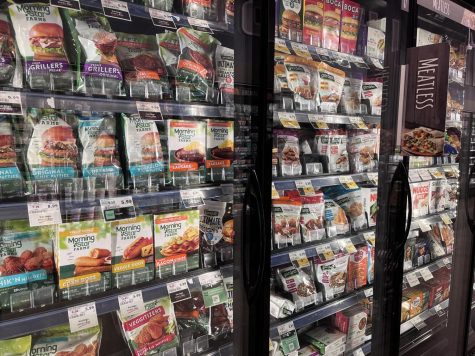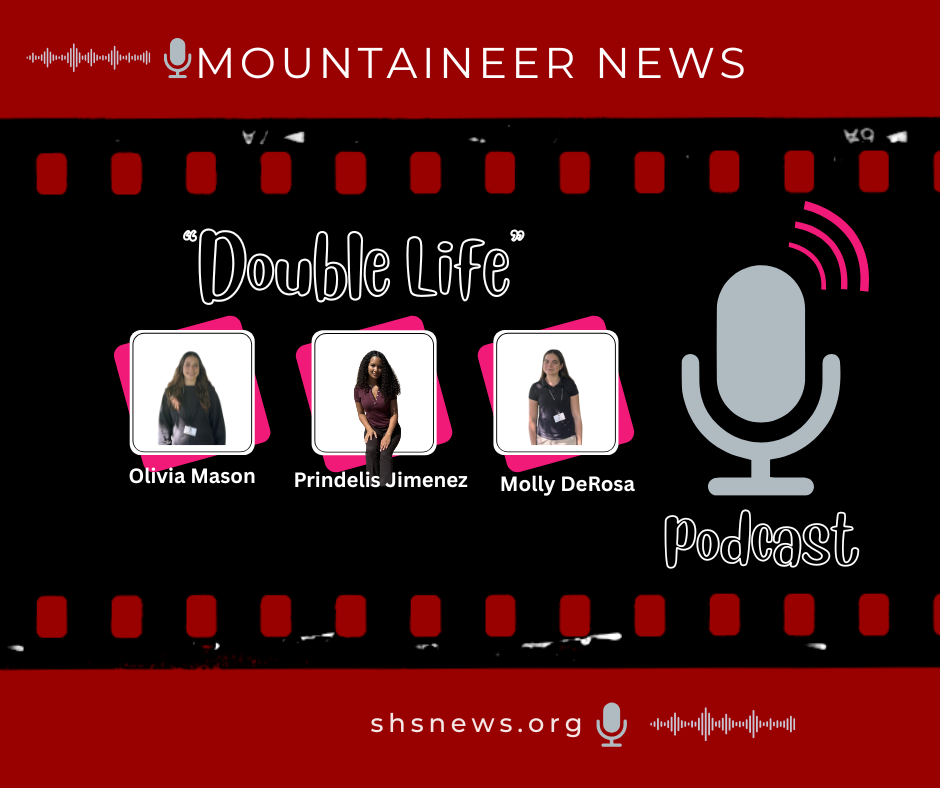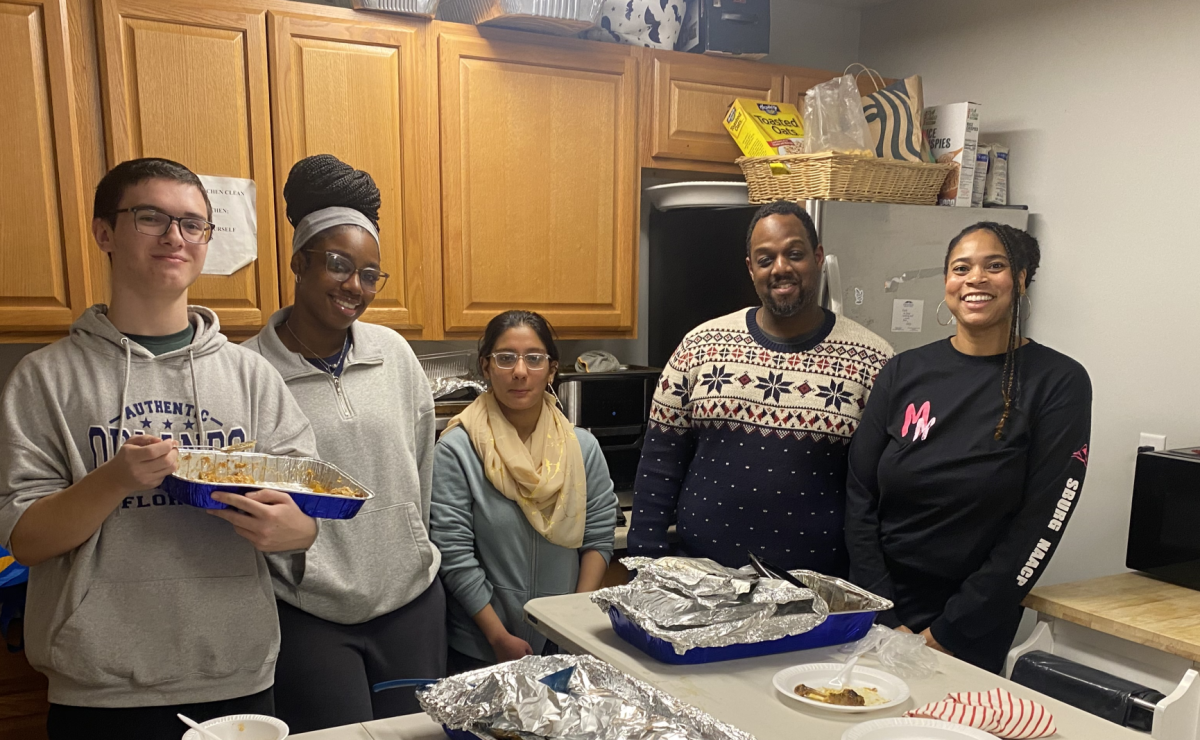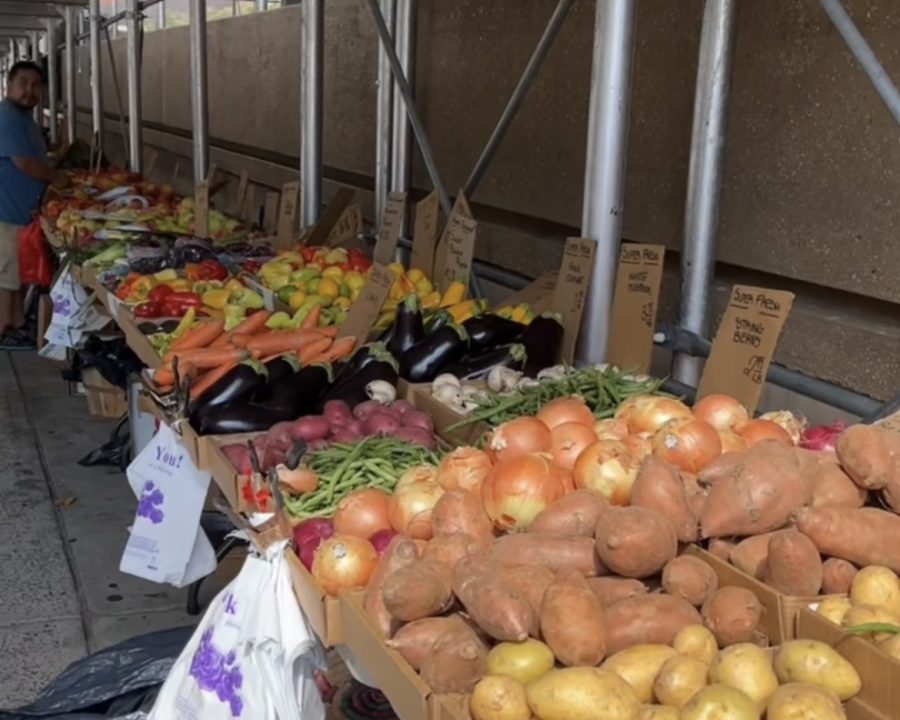SHS Community has differing opinions on diet fads
February 27, 2023
“What I eat in a day on keto”
“How to make a high protein, low sugar, low-calorie cheesecake”
“Day one of my juice cleanse!”
Students constantly hear these phrases online, but what are real people in our school eating?
Fifty years ago, beef and whole milk were a daily part of the American diet. However, current studies show a decrease in beef and milk consumption with an increase in sugar and grain consumption.
According to Drew Desilver from Pew Research Center, “America’s sweet tooth peaked in 1999,” yet the numbers have remained high, but what are people consuming now?
“What we eat as children ends up being what we eat as adults,” said psychology teacher Mr. Terrence Smith. He believes that it is important to prioritize fruits and vegetables, especially as growing humans.
Simple carbohydrates, which appear in fruits, candies, juices, and sugar, create opposing opinions.
Mr. Smith states that “as soon as [he] eats a donut,” it “instantly [puts him] in a bad mood.”

Not only do these carbohydrates affect Mr. Smith, but they also affect the lives of students, especially college students. Colleges typically provide carbohydrate-heavy meals due to their affordability. “Most young people don’t know how to select proper foods,” said Mr. Smith.
He personally follows intermittent fasting. For Mr. Smith, fasting for 12 hours allows him to “think clearer.”
Opposingly, Max Kubiak, SHS alumni and fitness enthusiast, believes that both sources are important for their individual purposes. “If you think that brown rice is better for you [than] white rice, my question is simply, why?” He expresses that carbohydrates provide energy and are usually consumed before exercise.
Proteins are the building blocks of muscle. Kubiak states that he typically “eats six meals a day with 30g of protein each” unless otherwise instructed by his coach. Protein can be found in fish, meat, poultry, and eggs. Plant-based proteins include beans, peas, lentils, and many others.
Protein is also recognized in the form of “protein shakes” which are consumed after exercising to build and repair muscles.
His belief is “[if] you can cook it at home, and it gives you energy throughout the day – it’s healthy.”

Delaney Burke, a junior at Stroudsburg High school, has been a vegetarian for 16 years. Her whole family follows a vegetarian diet.
Both Burke and Ms. Sarah Cepin, an art teacher at SHS, state that plant-based products are significantly more accessible than in the past. “Nowadays the supermarket carries all kinds of products.
Myoko’s, for example, has a liquid plant-based mozzarella cheese substitute. You just pour it onto a pizza, bake it, and it’s delicious,” says Cepin.
Cepin has been vegan for five years. She was a vegetarian for about six years before fully switching to a plant-based diet due to health reasons.
“After a while, I just think it’s weird that [we] eat animals,” said Ms. Cepin. However, she doesn’t force the same diets onto her family members. Her children follow a vegetarian due to their own preferences and her husband is an omnivore.

For anyone interested in veganism or vegetarianism, Cepin suggests slowly making substitutions when making everyday meals.
Substitutions include olive oil for butter, nut milk, oat milk, soy milk, and flax/chia for baking. Cepin recommends Beyond meat products and Just Egg. She also expresses her admiration for Vegan Treats, a bakery located in Bethlehem.
Smith and Kubiak, however, could not bear to transition into vegetarianism or veganism.
“I love animals,” said Kubiak, “but I love the way they taste more.”
Leah Pelaez, a senior at SHS, states that it would be hard to switch to a plant-based diet while living in a Hispanic/Latin household where meat makes a big part of cultural dishes.
Pelaez believes that “having a balanced meal is more important” than strictly trying to achieve a healthy diet. She prioritizes enjoying food rather than worrying about other factors.
For more information on nutrition and diet fads, check out any of the websites below:
- Federally mandated nutrition advice, MyPlate.gov
- Intermittent Fasting, from Johns Hopkins
- A guide to Veganism from Healthline









































































































